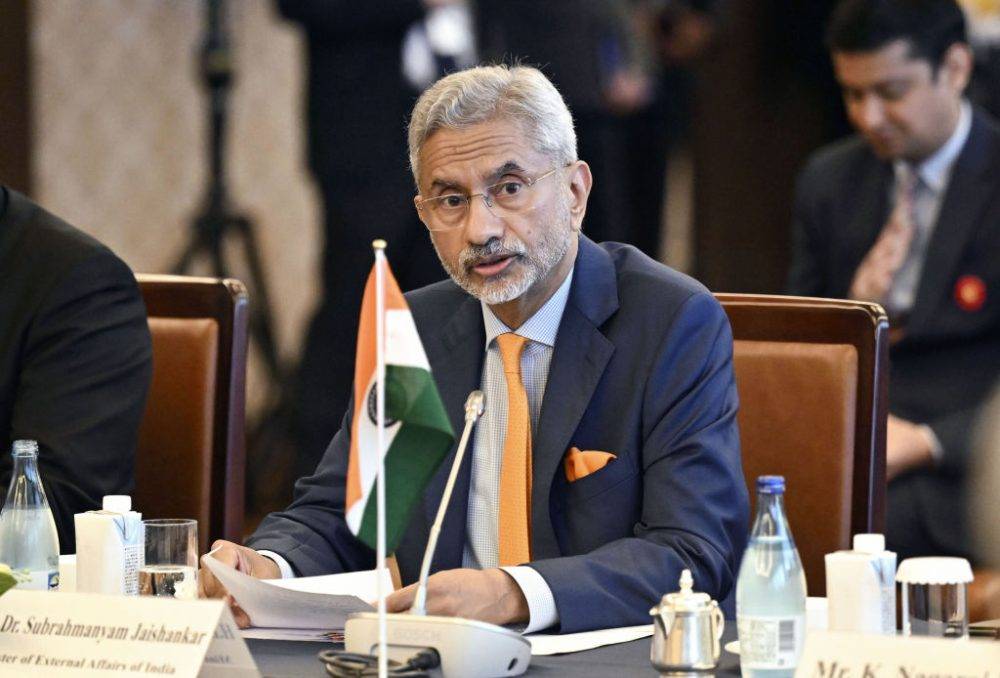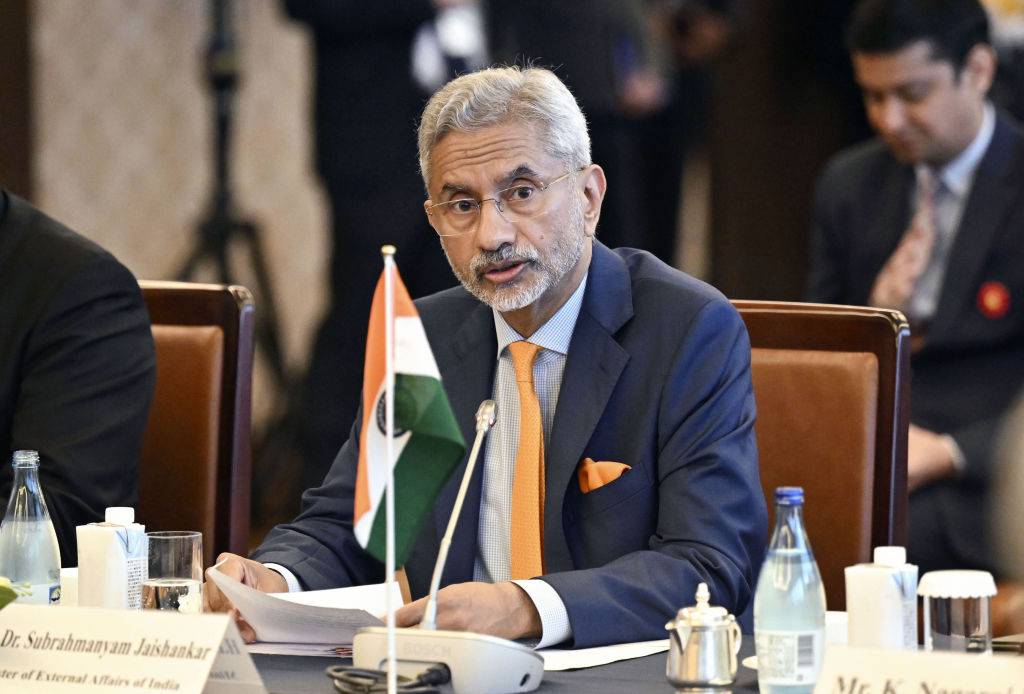
Doubts: Indian External Affairs Minister Subrahmanyam Jaishankar expressed skepticism about the BRICS currency (Photo: Kyodo News via Getty Images)
IIndian External Affairs Minister Subrahmanyam Jaishankar has expressed skepticism about the BRICS countries adopting a single currency and said he does not expect such a development to happen.
Speaking at a press conference in Delhi this week, External Affairs Minister Jaishankar said it was important to be realistic about the level of cooperation between BRICS nations and that each would likely continue to trade using its own currencies.
Several issues need to be considered before a single unit is feasible, he added.
“A lot of them are saying, 'Why do we need a third currency between us?' And that's totally understandable. Sometimes it's a liquidity issue, sometimes it's a cost issue, sometimes it's an efficiency issue,” he said.
“We sometimes hear people say we need a BRICS currency, but we mustn't forget that in order for countries to have a common currency, they need to substantially align their fiscal, monetary and economic policies, and they also need to check their political policies.”
The idea of a single currency was first proposed in 2011 when South Africa joined the group along with Brazil, Russia, India and China, and the government initially supported the idea of a potential counterbalance to the US dollar.
But ahead of a BRICS summit hosted by South Africa last year, Finance Minister Enock Godongwana said it was too early for South Africa to join discussions on de-dollarisation, stressing that the country's trade remained heavily skewed towards the West.
At a summit last year, BRICS announced it would admit Argentina, Egypt, Ethiopia, Iran, Saudi Arabia and the United Arab Emirates into the bloc. Iran, Egypt, Ethiopia and the UAE joined on Jan. 1, 2024, but Saudi Arabia has not yet formally joined.
Replying to a question on Israel's war in Gaza, External Affairs Minister Jaishankar said India has supported a two-state solution for many years.
“We are very concerned about the situation in Gaza and it is important to provide a sustainable humanitarian corridor, relief and reconstruction for all those affected,” he said.
“There is international humanitarian law that must be respected.”
The reporter's visit to Delhi was sponsored by the Government of India.

